Baker Academic New Testament Studies Collection (27 vols.)
Digital Logos Edition
Overview
Enhance your New Testament understanding with the Baker Academic New Testament Studies Collection. This library’s 27 volumes of sound, recent scholarship give you fresh insight into essential New Testament topics. Several volumes focus on New Testament interpretation; they provide a look at the Gospel’s historical, theological, literary, narrative, and social elements. This collection offers a glimpse into the lives, works, and ministries of Christ’s apostles—Simon Peter, Matthew, Mark, Luke, and John. It also focuses on oft-debated topics, including divorce, the Synoptic problem, Lukan pneumatology, violence, and textual criticism.
- Analyzes various methods of biblical interpretation
- Contains insights from various New Testament scholars
- Illustrates the contemporary relevance of the New Testament
- Title: Baker Academic New Testament Studies Collection
- Publisher: Baker Academic
- Volumes: 27
- Pages: 9,485
- Resource Types: Topical, Synopsis/Survey
- Topic: New Testament Biblical Studies
- The New Testament: A Historical and Theological Introduction by Donald A. Hagner
- Simon Peter in Scripture and Memory: The New Testament Apostle in the Early Church by Markus Bockmuehl
- Reading the Gospels Wisely: A Narrative and Theological Introduction by Jonathan T. Pennington
- The Text of the New Testament: From Manuscript to Modern Edition by J. Harold Greenlee
- Killing Enmity: Violence and the New Testament by Thomas R. Yoder Neufeld
- The Charismatic Theology of St. Luke: Trajectories from the Old Testament to Luke–Acts, 2nd ed., by Rogert Stronstad
- Matthew: Storyteller, Interpreter, Evangelist, rev. ed., by Warren Carter
- Mark: Storyteller, Interpreter, Evangelist by Francis J. Moloney
- John: Storyteller, Interpreter, Evangelist by Warren Carter
- Theology of the New Testament by Udo Schnelle
- Scripture as Communication: Introducing Biblical Hermeneutics by Jeannine K. Brown
- New Testament Commentary Survey, 7th ed., by D.A. Carson
- Can We Still Believe the Bible? by Craig Blomberg
- Love in the Gospel of John by Francis J. Moloney
- Gospels and Tradition: Studies on Redaction Criticism of the Synoptic Gospels by Robert H. Stein
- Studying the Synoptic Gospels: Origin and Interpretation by Robert H. Stein
- The Spirit in the Gospels and Acts by Craig Keener
- . . . And Marries Another: Divorce and Remarriage in the Teaching of the New Testament by Craig Keener
- New Testament Survey by Robert G. Gromacki
- Introducing the New Testament: A Historical, Literary, and Theological Survey by Mark Allen Powell
- The King in His Beauty: A Biblical Theology of the Old and New Testaments by Thomas R. Schreiner
- Scripture and Tradition: What the Bible Really Says by Edith M. Humphrey
- From Prophecy to Testament: The Function of the Old Testament in the New edited by Craig A. Evans
- New Testament Textual Criticism: A Concise Guide by David Alan Black
- New Testament Theology: Magnifying God in Christ by Thomas R. Schreiner
- Rethinking the Synoptic Problem edited by David A. Black and David R. Beck
- Making Sense of the New Testament: Three Crucial Questions by Craig L. Blomberg
This title is included in the following collections
You can save when you purchase this product as part of a collection.
 Baker Academic New Testament S...$699.99$699.99
Baker Academic New Testament S...$699.99$699.99Baker Academic New Testament S...
$1,299.99$1,299.99Baker Academic Biblical Studie...
$3,999.99$3,999.99Baker Ultimate Collection 2022...
$38,273.89$30,599.99
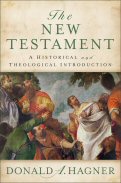
The New Testament: A Historical and Theological Introduction
- Author: Donald A. Hagner
- Publisher: Baker Academic
- Publication Date: 2012
- Pages: 848
This substantial introduction explores the origin and character of the New Testament writings. Donald Hagner deals with the New Testament both historically and theologically, employing the framework of salvation history. He treats the New Testament as a coherent body of texts and stresses the unity of the New Testament without neglecting its variety. Although the volume covers typical questions of introduction—such as author, date, background, and sources—it focuses primarily on understanding the theological content and meaning of the texts.
Throughout this capstone work, Hagner delivers balanced conclusions in conversation with classic and current scholarship, making this an essential resource for seminarians, graduate students, and upper-divisional undergraduates for study and lifelong reference. The book includes summary tables, diagrams, maps, and extensive bibliographies.
Donald A. Hagner is the George Eldon Ladd Emeritus Professor of New Testament and the senior professor of New Testament at Fuller Theological Seminary. He is the author of Encountering the Book of Hebrews, The Jewish Reclamation of Jesus, New Testament Exegesis and Research: A Guide for Seminarians, and commentaries on Hebrews and Matthew. Hagner is also coeditor of the New International Greek Testament Commentary and an ordained minister in the American Presbyterian Church.
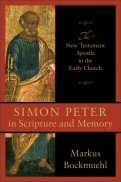
Simon Peter in Scripture and Memory: The New Testament Apostle in the Early Church
- Author: Markus Bockmuehl
- Publisher: Baker Academic
- Publication Date: 2012
- Pages: 240
After Jesus, Peter is the most frequently mentioned individual in both the Gospels and the New Testament as a whole, yet we know very little about this formative early-church figure. Markus Bockmuehl introduces the New Testament Peter by asking how first- and second-century sources may be understood through the prism of “living memory” among the disciples of the apostolic generation and the students of those disciples. He argues that early Christian memory of Peter underscores his central role as a bridge-building figure holding together the diversity of first-century Christianity. Drawing on more than a decade of research, Bockmuehl applies cutting-edge scholarship to the question of the history and traditions of Simon Peter. New Testament students and professors will value Bockmuehl’s fresh insight into the biblical witness and early Christian tradition.
Bockmuehl has long distinguished himself as a careful historian, sensitive to both Jewish and Greco-Roman dimensions of the early Christian movement and a sensitive reader of literary texts. This well-written and ecumenically sensitive volume draws on all of his impressive skills. New insights abound regarding the portrayal of Peter in the New Testament and in nonbiblical sources from the second century.
—Gary Anderson, Hesburgh Professor of Catholic Theology, University of Notre Dame
Widely esteemed New Testament scholar Markus Bockmuehl here sums up his research into the ‘historical Peter.’ Bockmuehl has a keen sense for the strengths and limitations of historical-critical inquiry. This erudite and accessible book will be welcomed by all who seek to understand not only what historians can surmise about the Galilean peasant Peter but also what such research can contribute to reflection about an ongoing ‘Petrine ministry’ among Christians today.
—Matthew Levering, professor of religious studies, University of Dayton
It is a joy to welcome Markus Bockmuehl’s latest study on Peter the apostle. Not since Cullmann in 1952 has there been such a thorough examination of the biblical information on Peter. This quest is pursued along with the Oxford tradition of patristic scholarship and with contemporary methodological sophistication, especially in regard to memory. Inscriptions and archaeology are also mined for their contributions. The whole work is inspired by a heart that beats for truth, for ecumenical understanding, and for reconciliation.
—Benedict T. Viviano, professor emeritus, University of Fribourg, Switzerland
Markus Bockmuehl is a Keble College fellow and a professor of biblical and early Christian studies at the University of Oxford. He previously taught at the University of Cambridge and the University of St. Andrews. Bockmuehl is the author or editor of numerous books, including Seeing the Word, Scripture’s Doctrine and Theology’s Bible, Paradise in Antiquity: Jewish and Christian Views, and Redemption and Resistance: The Messianic Hopes of Jews and Christians in Antiquity.
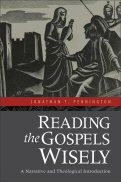
Reading the Gospels Wisely: A Narrative and Theological Introduction
- Author: Jonathan T. Pennington
- Publisher: Baker Academic
- Publication Date: 2012
- Pages: 288
In Reading the Gospels Wisely, Jonathan Pennington examines the theological and ethical aims of the Gospel narratives, helping students see the fruit of historical and literary study. He contends that we can learn to read the Gospels well from various vantage points, among them the premodern, modern, and postmodern.
This textbook can stand on its own as a guide to reading the Gospels as Scripture. It is ideally suited to supplement conventional textbooks that discuss each Gospel systematically. Most textbooks tend to introduce students to historical-critical concerns but may be less adequate for showing how the Gospel narratives, read as Scripture within the canonical framework of the entire New Testament and the whole Bible, yield material for theological reflection and faithful practice. Pennington neither dismisses nor duplicates the results of current historical-critical work on the Gospels as historical sources. Rather, he offers critically aware and hermeneutically intelligent instruction in reading the Gospels in order to hear their witness to Christ in a way that supports Christian application and proclamation. This text will appeal to professors and students in Gospels, New Testament survey, and New Testament interpretation courses.
This is a book that could transform many people’s reading of the Gospels. Jonathan Pennington has a wide knowledge of the specialist literature, and he skillfully distills what matters most for the task of reading the Gospels wisely. He is especially concerned that we read the Gospels in ways that are appropriate to the sort of texts they are. What comes across is a powerful sense that the Gospels are not only historical but also life-changing.
—Richard Bauckham, emeritus professor of New Testament studies, University of St. Andrews
Many books on the Gospels slog through source criticism, form criticism, and redaction criticism—important topics to be sure. How refreshing it is, however, to find a book with a new approach, one that reads the Gospels as literature and sees their importance theologically. This book is like a cool drink of water in what is too often the desert of Gospel studies. . . . his arguments must be reckoned with, and they further the conversation in productive and stimulating ways. I believe this is the best introductory book on the Gospels. Both students and professors will find it to be invaluable.
—Thomas R. Schreiner, James Buchanan Professor of New Testament Interpretation, The Southern Baptist Theological Seminary
Reading the Gospels can be tricky, but it is important to read them with a full appreciation of their theology. Jonathan Pennington’s study helps you get there—and get there well, as well as wisely.
—Darrell Bock, research professor of New Testament studies, Dallas Theological Seminary
Few academic enterprises of recent generations have been as chaotic and contradictory as the study of Jesus and the Gospels. . . . This learned yet lively volume attempts to transcend past miscues and cash in on lasting insights going back to patristic times. Pennington shows how the fourfold canonical Gospel ought to be read: as the proper entrée to becoming Jesus’ disciple for the sake of loving God by the work of the Spirit. Few works explain more.
—Robert W. Yarbrough, associate professor of New Testament, Trinity Evangelical Divinity School, Trinity International University
Jonathan T. Pennington is an associate professor of New Testament interpretation at the Southern Baptist Theological Seminary in Louisville, Kentucky. The author of Heaven and Earth in the Gospel of Matthew, he has published a number of biblical language–learning tools, including New Testament Greek Vocabulary and Old Testament Hebrew Vocabulary.
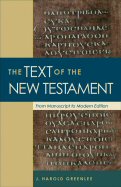
The Text of the New Testament is a brief introduction for the layperson to the New Testament’s origins. It describes the basics of ancient writing tools, manuscripts, the work of scribes, and how to think about differences in what the various manuscripts say. Geared to the layperson uninformed or confused about textual criticism, Greenlee’s book explains the production of ancient manuscripts and traces the New Testament’s textual development. Readers are introduced to the basic principles of textual criticism, the concept of variant readings, and how to determine which variant has the greatest likelihood of being the original reading. To illustrate the basic principles, several sample New Testament texts are examined. The book concludes by putting textual criticism in perspective as involving only a minute portion of the entire New Testament text—the bulk of which is indisputably attested by the manuscripts.
Greenlee takes the reader on an illustrated journey from the pens of the apostles to the printing press and beyond. It’s as rare as it is refreshing to read such a sane book that rises above the cluttered traffic and confusing signals on the information highway.
—Daniel B. Wallace, professor of New Testament studies, Dallas Theological Seminary
In all of his writings, Harold Greenlee’s overriding concern is to show that New Testament textual criticism, far from being a secondary or indifferent matter, is a matter of supreme importance. Once the student has started reading Greenlee, he or she will find that this soft-spoken man has relevance to one of the most crucial areas of biblical studies today. Certainly this revision of Greenlee’s classic textbook will be a welcome addition to any pastor or student’s library. I thank God that he has given his church such a warm-hearted and capable scholar.
—David Alan Black, professor of New Testament, Southeastern Baptist Theological Seminary
This is one of the clearest expositions of the science of textual criticism one is likely to find. . . . this small volume traces the history of writing, book-making, the various types of materials (papyrus, parchment, paper) and their implications for biblical manuscripts, the work of the scribes and copyists, the art of textual criticism, and the work of translation. Written for a lay audience, it combines sound scholarship with an explanatory style that makes it ideal as a resource for introductory courses on the New Testament or as informative reading for anyone interested in this important aspect of the biblical literature.
—The Bible Today
The name of J. H. Greenlee is well known in connection with New Testament textual criticism. . . . An obvious advantage of this book is that it is aimed at the general reader, not the trained New Testament scholar. It starts with a discussion of how ancient manuscripts were written, using good diagrams to explain how papyrus manuscripts were made and the difference between scrolls and codices. . . . The Greek manuscripts are discussed with explanations of their characteristics and how the numeration system for them has developed and operates. The history of New Testament criticism is set out in helpful summary form, along with a very clear discussion of general principles upon which textual decisions are made. The various modern translations (NRSV, NLT, NET, ESV, REB, NKJV) are surveyed in regard to their textual base, with good summaries, of their acknowledged textual preferences. . . . The obvious advantage of Greenlee’s discussion is that he explains New Testament textual criticism without assuming knowledge of Greek. Anyone can pick up this discussion and find intricate questions relating to textual criticism discussed with simplicity and clarity.
—Reformed Theological Review
This book is written by a scholar in plain language, it sets out the history of the manuscript evidence that lies behind the New Testament. 10 chapters introduce important issues. . . . Frequently, this most important aspect of the New Testament is ignored. However, to rightly interpret the New Testament every student should be familiar with the insights presented by Greenlee. . . . Greenlee has taken a very complex issue and presented it in clear straightforward terms. His balanced judgment is evident throughout. This text is excellent for an introduction to the subject, it is scholarly based, soundly balanced, and challenging. Worthwhile, it is an introductory window into a very important subject.
—Theological Book Review
[Greenlee] communicates with admirable clarity and includes details and insights that are likely to be of benefit to New Testament scholars.
—Journal for the Study of the New Testament
This book certainly whets the appetite of those at the very beginning of developing an interest in New Testament textual criticism. . . . successfully engages readers with a compelling mix of ancient scribal practices and the texts they produced, by charting the history of the transmission of the Greek New Testament and various translations, and by discussing ‘live’ issues especially in evangelical circles relating to claims about inerrancy of scripture and the superiority of the King James Version. This range of topics amply illustrates the ‘payoff’ that can be gained through a close study of the ancient manuscripts. . . . Greenlee says much that is sane and enlightening in this brief introduction to textual criticism. He is sensitive to the reality that for some readers the issues he discusses will appear controversial. . . . The reality is that [the book’s] clear presentation of the facts still sadly needs to be heard in some circles. Greenlee speaks those facts with a still small voice of calm which will hopefully bring greater clarity to some of the claims that are being made in support of certain English versions of the bible.
—Expository Times
A helpful primer for the uninitiated reader. . . . The presentation will help readers appreciate the New Testament text with greater depth and nuance. And ultimately, the idol of false certainty will be challenged as readers are called to appreciate the robust history and tradition of the New Testament text.
—Ashland Theological Journal
J. Harold Greenlee was a professor of New Testament Greek, a missionary with OMS International, and an international translation consultant with Wycliffe Bible Translators. He authored A Concise Exegetical Grammar of New Testament Greek.
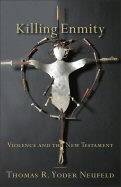
Violence is a persistent, prominent, and troubling feature of human existence. The usual understanding of violence involves physical attack. More broadly, violence can be understood as any kind of intentional harm, whether verbal, physical, or emotional, individual or collective. Pastors, theologians, and Christian leaders of all kinds may be called on to apply the message of the New Testament in situations of violence. But what is that message? The New Testament writers speak often of peace, but what do they have to offer in response to violence? Or does the New Testament, centering as it does on the crucifixion of its central character, perpetuate rather than alleviate the problem of violence?
In this book, Thomas Yoder Neufeld mines classic New Testament texts such as the Sermon on the Mount (or Plain), the cleansing of the temple, the “armor of God,” and the Revelation of John. He also addresses more generally the rhetoric of violence: metaphors and thought patterns that may reflect the violence of first-century Roman imperial reality.
Taking his cue from the ironic wording in Ephesians 2:16, which credits Christ with “killing the enmity” in his own body through his death on the cross, Yoder Neufeld asks whether and how the violent death of the nonviolent Jesus points to the ultimate overcoming of all wrongs, and all violence, by the good and saving God in whom he trusted.
Thomas Yoder Neufeld considers many of the New Testament’s texts that might implicitly or explicitly condone violence of one kind or another. Though he concludes that these texts actually subvert violence, he does so without avoiding the very difficult questions they raise. Readers will be both disturbed and challenged by this timely book.
—Michael J. Gorman, Raymond E. Brown Chair in Biblical Studies and Theology, St. Mary’s Seminary & University
Thomas Yoder Neufeld explores violence-related questions throughout the New Testament, including love of enemies, forgiveness, Jesus’ prophetic act in the temple, the atonement, subordination and divine warfare. His book stands out from other recent treatments of the topic because it deals honestly and clearly with the wide range of issues raised in the current debate while still holding to the texts as Scripture; it refuses to downplay the themes of judgment and vindication of the divine purposes; and it recognizes that the cultural, political and confessional location of the interpreter plays a crucial role in how the texts are evaluated. Readers will find it an insightful and indispensable guide.
—Andrew T. Lincoln, Portland Professor of New Testament Studies, University of Gloucestershire
That certain rhetorical and theological features of the New Testament accounts can be read as endorsing or fomenting violence is undeniable; that this is how they ought to be read is quite another matter. In this crystal-clear and profoundly responsible analysis, Tom Yoder Neufeld shows how the New Testament writers speak realistically of and to the violence that pervades human experience while simultaneously declaring God’s definitive conquest of violence through the death and resurrection of Christ. In setting forth this paradoxical and subversive truth, Yoder Neufeld exemplifies what it means to be a wise reader of Scripture today.
—Christopher Marshall, head of school, School of Art History, Classics and Religious Studies, Victoria University of Wellington
This book is especially appropriate for those who are new to conversations about nonviolence and Scripture. They will find basic instruction to orient them to the conversation and to relevant principles of New Testament interpretation. . . . Neufeld’s efforts at engaging the newest voices in the ethical appropriation of Scripture will reward those more familiar with the literature. . . . I found this volume to be quite readable and coherent. . . . Readers will be challenged not only to rethink their interpretation of specific passages and doctrines, but also to consider Neufeld’s haunting refrain: how a text is read largely depends on what kind of community is doing the reading.
—Englewood Review of Books
This is a serious and provocative study of violence in the New Testament-—paradoxically as a way of framing a New Testament theology of peace and nonviolence.
—The Bible Today
Thomas R. Yoder Neufeld is a professor of religious studies and theological studies at Conrad Grebel University College at the University of Waterloo, Ontario. He is the author of numerous articles and several books, including Recovering Jesus: The Witness of the New Testament and a commentary on Ephesians.
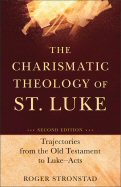
The Charismatic Theology of St. Luke: Trajectories from the Old Testament to Luke–Acts
- Author: Rogert Stronstad
- Edition: 2nd
- Publisher: Baker Academic
- Publication Date: 2012
- Pages: 144
What is the meaning of the Holy Spirit’s activity in Luke-Acts, and what are its implications for today? Roger Stronstad offers a cogent and thought-provoking study of Luke as a charismatic theologian whose understanding of the Spirit was shaped wholly by his understanding of Jesus and the nature of the early church. Stronstad locates Luke’s pneumatology in the historical background of Judaism and views Luke as an independent theologian who makes a unique contribution to the pneumatology of the New Testament. This work challenges traditional Protestants to reexamine the impact of Pentecost and explores the Spirit’s role in equipping God’s people for the unfinished task of mission. The second edition has been revised and updated throughout and includes a new foreword by Mark Allan Powell.
In my opinion, Roger Stronstad’s The Charismatic Theology of St. Luke is perhaps the most important biblical studies book ever written by a Pentecostal. Truly a seminal work, this slim volume caused a seismic shift in the terrain of Pentecostal biblical scholarship, changing forever its fundamental character while sending tremors beyond the tradition in all directions. I am delighted that this exceedingly important piece will continue its well-deserved shelf life, extending its availability for readers old and new. My commendation to Baker Academic for issuing this valuable new edition.
—John Christopher Thomas, Clarence J. Abbott Professor of Biblical Studies, Pentecostal Theological Seminary
The most influential work on Lukan pneumatology of this generation! 25 years ago, Stronstad solidified my earliest convictions about the activity of the Holy Spirit. Today, my students echo the same refrain. Those familiar with Pentecostal/charismatic teaching on the Spirit-filled life find fodder for fresh reflection and exploration. Those not familiar receive a challenging invitation for renewed pursuit of the Spirit. I could not be happier that this book has been revised and will remain in print.
—Martin Mittelstadt, associate professor of biblical studies, Evangel University
With the publication of Stronstad’s The Charismatic Theology of St. Luke in 1984, Pentecostal scholarship on Luke-Acts introduced itself to the academic community. Stronstad advanced a simple narrative approach to Luke’s writings: take the text seriously by following the storyline. By tracking plot patterns and considering Luke’s storytelling techniques, Stronstad found Luke’s understanding of the mission of Christ and the church, and the nature of Spirit empowerment to effect it. In our graduate curriculum, this book is the cornerstone of our ‘Pentecostal distinctives’ course.
—Van Johnson, dean, Master’s Pentecostal Seminary, Toronto
Roger Stronstad is an associate professor in Bible and theology at Summit Pacific College in Abbotsford, British Columbia. He is the author of many articles and six books, including The Prophethood of All Believers: A Study in Luke’s Charismatic Theology. Strongstad also coedited Life in the Spirit New Testament Commentary.
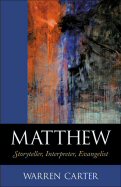
For many years, the well-received first edition of this commentary has offered readers a way to look at scriptural texts that combines historical, narrative, and contemporary interests. Carter explores Matthew by approaching it from the perspective of the “authorial audience”—by identifying with and reading along with the audience imagined by the author. This newly updated second edition focuses on Matthew as storyteller, interpreter, and evangelist. It preserves the essential identity of the original material, while adding new insights from Carter’s more recent readings of Matthew’s Gospel in relation to the Roman Imperial world.
Four of the seventeen chapters have been significantly revised, and most have had minor changes. There are also new endnotes directing readers to Carter’s more recent published work on Matthew. Scholars and pastors will use the full bibliography and appendix on redaction and narrative approaches, while lay readers will appreciate the clear and straightforward text.
With a deft touch and an eye for detail, Carter invites the reader to follow him on a well-planned literary tour of the world of Matthew’s Gospel and its story of Jesus. To begin the tour, Carter acquaints the reader with the social and cultural circumstances of Matthew’s author and audience and then shows the reader the heart of Matthew’s story as he discusses its viewpoint, plot, settings, and characters. To conclude the tour, Carter relates Matthew’s gospel-proclamation to various aspects of contemporary religious experience. Writing for students, ministers, and scholars alike, Carter demonstrates a fine mastery of both historical and literary methods. His book will be touted as a worthy contribution to Matthean studies.
—Jack Dean Kingsbury, emeritus professor of biblical theology, Union Theological Seminary
Warren Carter presents a balanced literary, social, and historical interpretation of Matthew. He concerns himself with these three approaches in order to elucidate what Matthew had to say, how he said it, and how it might be experienced today. . . . His book is a good introduction both to Matthew and to the processes of thoughtful reading. Carter’s work may not be the last word on Matthew’s gospel—indeed, he would not want it to be—but it is a work that helps its readers begin their own dialogue with the gospel, a fitting goal for all biblical interpretation.
—Steven J. Kraftchick, associate professor in the practice of New Testament interpretation, Candler School of Theology
This book is worthy of careful study by student and scholar alike. Carter’s is certainly among the most innovative modern approaches to methods of studying the Gospel from a literary perspective, as well as incorporating more traditional (historical-critical) methodological tools. His method is unique in that, though it intends to provide an audience-oriented approach to complement the wealth of material available from a redaction-critical perspective, he pushes the methodological agenda by incorporating both methods. . . . Carter’s is certainly an important book.
—Review of Biblical Literature
This book will be useful to the discerning reader, especially where it provides useful insights into the text of Matthew’s Gospel.
—Reformed Theological Review
Carter’s highly praised introduction to Matthew focuses on the narrative aspects of the First Gospel. The new edition has been reset and edited to include much on the gospel’s social world in an ancient agrarian society. Carter ranks as one of the world’s leading authorities on Matthew.
—International Review of Biblical Studies
This readable and uncluttered introduction, including extensive chapter endnotes, does not stray far from the scholarly consensus but gives it life by understanding Matthew’s audience. It admirably meets its intended purpose as a text for undergraduate and seminary students who are beginning their study of Matthew. More advanced students will also find it refreshing and helpful.
—Journal for the Study of the New Testament
I will find this book very useful as a reference tool and recommend it highly for college courses.
—Catholic Biblical Quarterly
Warren Carter is a professor of New Testament at Brite Divinity School, Texas Christian University. He is the author of many books, including John: Storyteller, Interpreter, Evangelist, The Roman Empire and the New Testament, Matthew and Empire, John and Empire, and Matthew and the Margins.
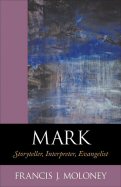
The earliest and briefest of the four Gospels has traditionally been ascribed to a disciple named Mark. In some ages, it been overshadowed by its lengthier New Testament neighbors, but its pages hold rich rewards for those who ask the right questions. Who was “Mark,” and what were his purposes—historical, theological, or otherwise? How does he shape his story of Jesus, and what interpretation of the origins of Christianity does that shaping reveal? What is his understanding of his central character, Jesus of Nazareth? And what abiding value does Mark’s story hold for those who read this “good news” as a key part of the charter of the Christian church in its life today?
Seminarians, students, pastors, and readers seeking an introduction to the Gospel of Mark through the lens of sensitive literary, historical, and theological scholarship need look no further. In Mark: Storyteller, Interpreter, Evangelist, Francis J. Moloney offers the fruits of top-level biblical scholarship in a broadly accessible format. Students and professors alike will appreciate and profit from his fresh and lucid presentation of the message of one of the Christian faith’s earliest and most enigmatic proponents and the inventor of its most revered literary genre.
If you are seeking a reliable and engaging introduction to the Gospel of Mark, look no further. Moloney’s work presents students and pastors, as well as scholars, with a reliable account of how the Gospel of Mark became such a central text in contemporary New Testament studies, and it offers as an engaging reading of the Markan story that opens new vistas. Moloney provides a thorough study of Markan Christology and ecclesiology, and his final chapter, ‘The Good News of Human Failure,’ is the most insightful statement of Mark’s accomplishment I have read. Clearly written and always compelling in its presentation, Mark: Storyteller, Interpreter, Evangelist is the perfect introduction to a serious reading of the Markan Gospel. Carefully researched and based on an insightful reading of the Gospel text, it will remain a staple of Markan studies for years to come.
—Frank J. Matera, professor of New Testament, The Catholic University of America
Moloney plunges deeply into the background, structure, literary character, and profound theology of this Gospel and the community from which it derived. College or seminary courses on Mark might find this a helpful resource, with its clear analysis and rich bibliographical material.
—The Bible Today
I highly recommend this book as an introduction to Mark for college and seminary classes. Lay individuals and parish study groups will find this book accessible and beneficial, and scholars will benefit from many fine insights in the text and in the informative endnotes.
—Catholic Biblical Quarterly
A thorough introduction to Markan theology. . . . The book includes detailed scholarly notes and two bibliographies.
—International Review of Biblical Studies
[This] book is definitely one of the most readable introductions to Mark.
—Toronto Journal of Theology
Designed for the nonspecialist, this study manages to include a good deal of information about the gospel of Mark in a limited amount of space. . . . As befits this non-technical treatment, Moloney regulates scholarly notes to the end of chapters, thereby rendering the text readable and the pages airy and attractive. . . . This is one of the better introductions to Markan thought. It is recommended for its intended purpose.
—Religious Studies Review
Shorter than a commentary, but based on it, and written in a lucid, popular, and accessible style (albeit with well-documented endnotes for the specialist), this book by Moloney will be found of interest to students, scholars, and pastors alike. . . . [T]his is an excellent contribution to recent Markan studies; it will be of value to those interested in this endlessly fascinating Gospel for some time to come.
—Expository Times
Francis J. Moloney is the emeritus senior professorial fellow at Australian Catholic University, Melbourne. He formerly served as dean of the School of Theology and Religious Studies at Catholic University of America and as provincial superior of the Salesians of Don Bosco for Australia and the Pacific region. He is the author of many books, including The Gospel of John: Text and Context.
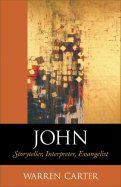
John: Storyteller, Interpreter, Evangelist is an accessible introduction to the Fourth Gospel. This book examines three aspects of John’s Gospel: John’s telling of the story of Jesus, his interpretation of Jesus for his readers, and his formulation of all of this into the Gospel of Jesus.
Carter surveys the central issues of this Gospel and engages with narrative and historical approaches, the two dominant methods used in interpreting John’s Gospel. He introduces his readers to consider the Gospel’s negotiation of the Roman Imperial world.
This book is written for college and seminary students, clergy seeking resources for teaching and preaching, and laity—especially Bible study groups that like to engage a topic in some depth.
The adage that the Gospel of John is a pool in which a child can wade and an elephant can swim is repeated often. While John is widely accessible on a superficial level, it demands a great deal if one is to read it perceptively. Warren Carter provides serious readers with a thorough orientation to the Gospel, leading students of the Gospel into its literary, historical, and theological facets while providing an overview of key figures and contributions in Johannine scholarship. Everyone needs a guide when entering unfamiliar territory, and, for the adventurous, Carter is surefooted, reliable, and insightful. Those who follow his lead will quickly find John to be a source of endless fascination.
—R. Alan Culpepper, dean, James and Carolyn McAfee School of Theology
This is an excellent and substantial introduction to the Gospel of John geared for seminaries or college courses but also useful to anyone wanting to gain a deeper knowledge of this gospel. . . . Equipped with a rich bibliography and laid out in an organized fashion, this introduction provides a strong orientation to the gospel and its interpretation.
—The Bible Today
The greatest strength of this book is its emphasis on reading the narrative as an autonomous story and allowing John’s Gospel to speak independently of any other tradition. Evangelical students of the Gospels have a tendency to get mired in the historical minutiae of the text or to harmonize first and thereby miss out on the distinctive theological contributions of the writers. Because of these all too common tendencies, Carter’s volume will prove useful for helping beginning evangelical students read the Fourth Gospel as an independent narrative. This text will prove useful for introductory classes on the Fourth Gospel and is highly recommended.
—Journal of the Evangelical Society
The book will serve college and seminary students well, and clergy wanting to do some solid work with the Gospel.
—Biblical Theology Bulletin
This handbook makes for an excellent primer on its topics and can be warmly recommended.
—Bulletin for Biblical Research
In John: Storyteller, Interpreter, Evangelist, author Warren Carter explains that he is writing for college and seminary students, for clergy seeking resources for preaching and teaching, and for laity seeking to engage in the study of the Fourth Gospel in some depth. He is thus not writing this book for his peers, although specialists will undoubtedly learn from it. In addressing a general audience, Carter does not sacrifice his commitment to scholarly excellence and precision. The result is an erudite but accessible introduction to John’s Gospel.
—Toronto Journal of Theology
This book is a first-class introduction to the Fourth Gospel which will prove invaluable to all those approaching serious study of the Gospel for the first time. In an engaging style, Carter comprehensively and clearly examines the significant issues in contemporary Johannine scholarship. . . . Carter has produced a very well-written and remarkably comprehensive introduction to John, which should be well received by student and scholar alike.
—Journal for the Study of the New Testament Booklist
Warren Carter is a professor of New Testament at Brite Divinity School, Texas Christian University. He is the author of many books, including Matthew: Storyteller, Interpreter, Evangelist, The Roman Empire and the New Testament, Matthew and Empire, John and Empire, and Matthew and the Margins.
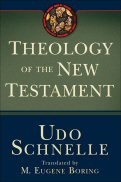
The crowning achievement for students of the New Testament is to grasp the whole while discerning the parts, to derive contemporary theological meaning without compromising historical accuracy, to respect the integrity of the ancient texts while interpreting validly within the structures of modern and postmodern consciousness. But how is it possible to communicate the diversely expressed faith of ancient Mediterranean fishermen and tentmakers in a crucified Jewish messiah to the academy and the church of the globalized and pluralized twenty-first century?
In Theology of the New Testament, Udo Schnelle—master teacher, deft exegete, committed churchman, and fully attuned contemporary intellectual—takes up this challenge with extraordinary energy and intelligence. The result is a capstone volume that puts all the pieces together both for students who read it straight through and for professors, theologians, pastors, and others who work through it at their own pace. For all who read it, the book will become a standard reference, a reliable source not only for summaries of particular New Testament books and topics but also for a refreshed and deepened perception of how a transcendent message has been uttered through temporally and spatially fixed actions and words.
The translation, prepared by a leading American scholar who knows the author well and shares similar qualifications and commitments, achieves the literary quality of an original English composition while conveying accurately the sense of the original German and adding bibliographic adaptations for English-language readers.
Schnelle’s Theology of the New Testament is, in my view, perhaps the most methodologically sophisticated and theologically significant contribution to the genre in the past 20 years. ‘Jesus of Nazareth: The Near God’ is the common center for his informed and insightful elaboration of the thought of New Testament theology in the context of a contemporary understanding of reality. The author’s critical acumen and theological sensitivity, as well as his obvious control of both primary and secondary literature, make this book a necessary addition to the library of every serious student of the New Testament and an ideal text for advanced courses.
—David E. Aune, Walter Professor of New Testament and Christian Origins, University of Notre Dame
A magnificent achievement. Udo Schnelle’s Theology of the New Testament comprises philosophical reflection, reconstruction of earliest Christian thought, and a history of biblical interpretation. At heart, however, the volume offers meticulous analysis of the New Testament’s varied constituents. The exegesis is well balanced; the conclusions, sound. Like its subject matter, this investigation gathers most of what is important from previous works and points the way toward a constructive future. Schnelle’s magnum opus will stand as one of the twenty-first century’s few indispensable works in the field.
—-C. Clifton Black, Otto A. Piper Professor of Biblical Theology, Princeton Theological Seminary
Fresh, invigorating, enlightening, and occasionally provocative, this survey of New Testament theology serves well as a handbook of informed discussion of the crucial issues. With the confident hand of a seasoned scholar and a refreshing openness to the transcendent, Schnelle guides the reader book by book through the canon, using the familiar categories of systematic theology to ensure comprehensive coverage. Here is not only outstanding German scholarship but also an entry into contemporary German discussion via exceptionally rich footnotes.
—Donald A. Hagner, senior professor of New Testament, Fuller Theological Seminary
This is a superb and substantial resource provided by an outstanding German biblical scholar.
—The Bible Today
The first decade of the twenty-first century witnessed an extraordinary outpouring of New Testament theologies. . . . Udo Schnelle’s Theology of the New Testament, elegantly translated by M. Eugene Boring, is the high point of this productive decade. . . . It is, in my view, the finest work of New Testament theology available in English today. . . . This volume offers a delicate balance between history and theology whereby the theology of the New Testament is grounded in historical events, and history is interpreted in light of theological meaning-formation. It provides extended treatments of writings often neglected in New Testament theologies, for example, the Deutero-Pauline letters and the Catholic Epistles. Moreover, rather than denigrating these writings as a falling away from a pristine Pauline or Johannine tradition, it highlights their positive value in light of the new historical circumstances their authors addressed.
—Catholic Biblical Quarterly
Udo Schnelle is a professor of New Testament at the University of Halle in Germany. He is the author of numerous works, including Apostle Paul: His Life and Theology, translated by M. Eugene Boring.
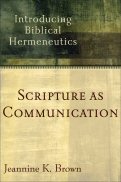
Jeannine Brown believes that communication is at the heart of what we do when we open the Bible—that we are actively engaging God in a conversation that can be life changing. In this basic guide to the theory and practice of biblical hermeneutics, Brown proposes a communication model as an effective approach to interpreting the Bible. Drawing upon thinkers such as Kevin Vanhoozer, Nicholas Wolterstorff, and Anthony Thiselton, she first explicates and then demonstrates how such a model can enhance our ability to understand Scripture. Brown’s fresh, engaging voice comes through in this clearly written guide for professors, students, and church leaders.
Brown has written an excellent text for hermeneutics classes that is clear and well organized and reveals a superb mastery of the material. Understanding texts as a form of communication rather than as art is a helpful correction to recent trends in interpretation.
—Robert H. Stein, senior professor of New Testament interpretation, Southern Baptist Theological Seminary
In an engaging and conversational style, Jeannine Brown addresses the complexities of hermeneutics and explains how an understanding of those complexities can help readers develop a healthy hermeneutical self-consciousness as they read Scripture, God’s communicative act. She defines important terms and addresses major hermeneutical theories, providing a realistic appraisal of hermeneutical challenges while also offering positive, practical guidelines. Above all, Brown reminds us that reading Scripture is learning to discern a communicative act initiated by God. Such a hermeneutical journey is about treating Scripture as an encounter with a friend, not as a code to be broken. Brown stresses, therefore, what is often lost in similar treatments: that authentic hermeneutical inquiry is not only grounded in faith but also moves us toward a deepening of that faith.
—Peter Enns, biblical scholar
Jeannine Brown has proven herself to be a reliable guide for those committed to serious engagement with Christian Scripture. Her ‘communicative act’ model prioritizes the biblical text without undermining the importance of either authors or readers. Complex issues are clearly explained. Controversial issues receive fair-minded treatment. Talk about interpretation is coupled with examples of interpretation. Scripture as Communication will be attractive both to students beginning the journey of biblical interpretation and to those already well on the way.
—Joel B. Green, professor of New Testament interpretation, Fuller Theological Seminary
This book contributes substantially to the current conversation within Christianity on interpretation theories and biblical hermeneutics. Jeannine Brown draws from speech-act theory, relevance theory, literary theory, and narrative theology to offer a balanced approach, which she terms the communication theory of interpretation. By grounding her communicative model in the incarnation, she convincingly combines truth and interpretive method, and she does so with impressive clarity and ease. Without any loss of depth, Brown clarifies complex ideas with the help of excellent illustrations that make this book accessible to anyone from pastors to students to experts in the field. A significant achievement!
—Jens Zimmermann, professor of English and Modern Languages, Trinity Western University
Jeannine Brown’s Scripture as Communication is an ideal textbook for introductory hermeneutics courses, steering a middle course between the advanced hermeneutical volumes of Thiselton and Vanhoozer and overly-simplistic books on Bible study methods. The work provides a sound theoretical and philosophical foundation for students to engage the fundamental question of the ‘meaning of meaning’ in the biblical text.
—Mark L. Strauss, professor of New Testament, Bethel Seminary San Diego
[Brown] has an engaging style, making complex ideas and concepts understandable for a wide audience. Her method is made clear through the use of many excellent illustrations. Anyone who desires to improve in the ability to read the Bible in a distinctively Christian manner and to be shaped by the Scriptures will find this book helpful.
—Biblicotheca Sacra
Jeannine K. Brown is a professor of New Testament at Bethel Seminary and is the author of The Disciples in Narrative Perspective. She contributed to The Baker Illustrated Bible Commentary and has written for such publications as Journal of Biblical Literature and Catholic Biblical Quarterly.
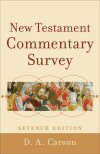
Highly respected New Testament scholar D.A. Carson provides students and pastors with expert guidance on choosing a commentary for any book of the New Testament. The seventh edition has been updated to assess the most recently published commentaries. Carson examines series, one-volume commentaries, and New Testament introductions and theologies, evaluating the available offerings for each New Testament book. This is an essential guide to building a reference library.
If you are preparing a new sermon series and looking for advice on commentaries, you must consult . . . the New Testament Commentary Survey. . . . [It] will help to save you lots of money in the long run.
—Semper Reformanda
An incredibly informative and wonderfully fun book. There is an extraordinary amount of information packed into its pages, and the fun comes from considering one’s own preferences and then alternately agreeing or disagreeing with Carson’s comments. . . . This book will be of continued benefit to theological students.
—Paul Foster, Journal for the Study of the New Testament
Carson’s work is most valuable and his perceptive remarks will serve pastors and students well.
—David S. Dockery, Review and Expositor
D.A. Carson is research professor of New Testament at Trinity Evangelical Divinity School. He is author or editor of numerous books, many of which are found in the D.A. Carson “Love of God” Collection.
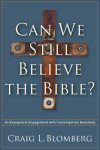
Challenges to the reliability of Scripture are common today. Distinguished biblical scholar Craig Blomberg offers an accessible and nuanced argument for the Bible’s reliability in response to the extreme views about Scripture and its authority articulated by both sides of the debate. He believes that a careful analysis of the relevant evidence shows we have reason to be more confident in the Bible than ever before. As he traces his own academic and spiritual journey, Blomberg sketches out the case for confidence in the Bible in spite of various challenges to the trustworthiness of Scripture, offering a positive, informed, and defensible approach.
Mention the Bible, especially a hot topic like canon or miracles, and one second later you will hear strident voices attacking the Bible’s silliness or calling others names for not believing the Bible. Those topics, and many more besides, are volatile because they matter, and what matters most for the discussion is the voice of reason and balance. Enter Craig Blomberg with nothing less than a splendid example of ‘generous apologetics’ for the faith. Whether you agree on specific points, this is the finest example I know of for how to defend the Bible.
—Scot McKnight, professor of New Testament, Northern Seminary
The Bible has gone from being the answer to being the question in our culture. Can I still believe what it claims? Answering emphatically yes, Blomberg examines the pitfalls of making the Bible say too little or too much, both real problems for understanding how the Bible works. So read and consider anew how to think about Scripture. The result will be that belief in the Bible makes sense.
—Darrell Bock, executive director of cultural engagement and senior research professor of New Testament studies, Dallas Theological Seminary
Craig Blomberg’s defense of the Scriptures’ truthfulness is both important and timely. He keeps the main thing the main thing as he warns well-meaning believers about drawing rigid lines in the wrong places—and damaging the church’s witness—while dispelling myths and correcting distortions propounded by Christianity’s loudest critics. This book is a superb resource and guide regarding what the Bible’s trustworthiness means—and doesn’t mean.
—Paul Copan, professor and Pledger Family Chair of Philosophy and Ethics, Palm Beach Atlantic University
Craig Blomberg is distinguished professor of New Testament at Denver Seminary, where he has been teaching since 1986. Blomberg earned degrees from Augustana College, Trinity Divinity School, and Aberdeen University in Scotland. He previously taught at Palm Beach Atlantic College and spent one year in Cambridge as a research fellow with Tyndale House. He has been on translation committees for the New Living Translation, English Standard Version, and the Holman Christian Standard Bible.
Bloomberg is the author, coauthor, or coeditor of numerous books and more than 80 articles in journals or multiauthor works. A recurring topic of interest in his writings is the historical reliability of the Scriptures, and he has also covered such diverse issues as wealth and poverty, hermeneutics, and women in ministry. His books include Jesus and the Gospels: An Introduction and Survey, 2nd ed., Zondervan Exegetical Commentary on the New Testament: James, A Handbook of New Testament Exegesis, Making Sense of the New Testament, Preaching the Parables, and The NIV Application Commentary: 1 Corinthians.
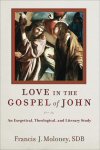
The command to love is central to the Gospel of John. This capstone work on John’s Gospel uses a narrative approach to delve deeply into the theme at the heart of the Fourth Gospel and the life of the Christian church. Uniting rigorous exegesis with theological and pastoral insight, Love in the Gospel of John makes a substantive contribution to contemporary Johannine scholarship. Internationally respected scholar Francis J. Moloney offers a thorough exploration of this theme, focusing not only on Jesus’ words but also on his actions. Instead of merely telling people that they must love one another, Jesus acts to make God’s love known and calls all who follow him to do the same.
Francis J. Moloney is one of the most distinguished Catholic scholars of John’s Gospel in the English-speaking world today. In his latest work on the Fourth Gospel, he displays his fine gifts as an able teacher. Having absorbed a vast amount of literature on the topic of love in John’s Gospel, he presents his own argument in a clear, orderly form that even the uninitiated can grasp.
—John P. Meier, Warren Chair Professor of Theology, University of Notre Dame
Francis J. Moloney is well known for his narrative commentaries on the Gospel of John. In Love in the Gospel of John, he uses his understanding of narrative to explore and interpret the theology of the Gospel. He sees that John tells the story of Jesus as the story of God, who, for love of the world, gave his Son to save the world, and argues that this reality is integral to the Gospel and the source of Jesus’ command to ‘love one another as I have loved you.’ Readers interested in John will want to read this book.
—John Painter, professor of theology, Charles Sturt University
Decades of study of the Fourth Gospel have uniquely qualified Frank Moloney to write this book about love in the Gospel of John. What he has written is a story of God’s love for the world, manifest in Jesus’ love for his own until the end and proclaimed in the Gospel according to John. The evangelist’s story has all the twists and turns of any real love story. Moloney sheds light on these several twists and turns as only he, among contemporary English-language scholars, can do.
—Raymond F. Collins, visiting scholar, department of religious studies, Brown University
Francis J. Moloney is the emeritus senior professorial fellow at Australian Catholic University, Melbourne. He formerly served as dean of the School of Theology and Religious Studies at Catholic University of America and as provincial superior of the Salesians of Don Bosco for Australia and the Pacific region. He is the author of many books, including Mark: Storyteller, Interpreter, Evangelist.
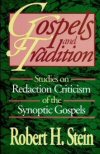
Follow revered scholar Robert Stein as he demonstrates the ability of redaction or source criticism to clarify the message and teaching of the New Testament. Using Mark as a laboratory, Stein identifies the most profitable ways redaction criticism can be used, while also distinguishing between proper and improper usage.
Robert H. Stein was senior professor of New Testament interpretation at Southern Baptist Theological Seminary. He previously taught at Bethel Seminary. A world-renowned scholar of the Synoptic Gospels, he is the author of several books, including Jesus the Messiah, Mark in the Baker Exegetical Commentary on the New Testament series, and Luke in the New American Commentary series.
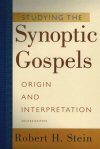
Stein examines the literary relationships of the Synoptic Gospels, the preliterary history of the oral traditions of Jesus, and the canonization of the gospel traditions. This text is an essential resource for teachers and students, providing a succinct, lucid, and comprehensive introduction to the most complex problems of interpreting the gospels.
This book is highly recommended for all students of the Gospels, but especially for those entrusted with the exposition and proclamation of the Word.
—David A. deSilva, Ashland Theological Journal
A clear and effective presentation of modern synoptic criticism . . . a good example of what evangelical critical scholars can do with the dominant techniques of synoptic analysis.
—J.W. Scott, Westminster Theological Journal
I whole heartedly recommend this book to all teachers of religion and to the general reader who takes his reading of the Gospels seriously.
—Lawrence O’Keefe, O.S.B., Faith
Robert H. Stein was senior professor of New Testament interpretation at Southern Baptist Theological Seminary. He previously taught at Bethel Seminary. A world-renowned scholar of the Synoptic Gospels, he is the author of several books, including Jesus the Messiah, Mark in the Baker Exegetical Commentary on the New Testament series, and Luke in the New American Commentary series.
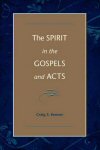
Carefully mine the New Testament gospels and the book of Acts to understand what the Holy Spirit meant in the lives of early believers with Craig Keener. Christianity did not arise in a vacuum, but rather it appropriated, modified, and utilized the Jewish understanding of the work of the Holy Spirit. By understanding the world in which Christianity emerged, we can better understand the earliest believers’ experience of God’s empowering and purifying Spirit.
[A] detailed and stimulating treatment of the selected passages, and full of observations beyond the proposed ambit of the study.
—Bill Salier, Reformed Theological Review
Keener handles both the biblical text and extra-biblical sources carefully and even-handedly. He refers consistently to primary sources, and he has included extensive bibliographical resources and indexes.
—John D. Harvey, Journal of the Evangelical Theological Society
Craig S. Keener is professor of New Testament at Asbury Theological Seminary in Wilmore, Kentucky. He is the author of many books, including Miracles: The Credibility of the New Testament Accounts, The IVP Bible Background Commentary: New Testament, The Historical Jesus of the Gospels, Gift and Giver, and commentaries on Acts, Matthew, John, Romans, 1–2 Corinthians, and Revelation.
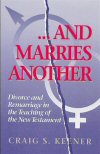
Carefully documented and compassionate, this book explores how early Christians would have understood the statements of Jesus and Paul on divorce and remarriage. Keener then builds a soundly scriptural view of divorce and remarriage—a view that reminds the church that all of its members are forgiven people.
A first-rate piece of pastoral scholarship.
—Gordon D. Fee, professor of New Testament, Regent College
Craig S. Keener is professor of New Testament at Asbury Theological Seminary in Wilmore, Kentucky. He is the author of many books, including Miracles: The Credibility of the New Testament Accounts, The IVP Bible Background Commentary: New Testament, The Historical Jesus of the Gospels, Gift and Giver, and commentaries on Acts, Matthew, John, Romans, 1–2 Corinthians, and Revelation.
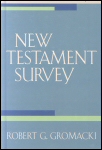
Before coming to grips with an individual verse or passage in the New Testament, Bible students and expositors must understand how it relates to the theme of the book. Robert Gromacki’s New Testament Survey provides a solid foundation for in-depth exegesis of each book in the New Testament.
“The purpose of [this] survey,” the author writes, “is to give a working understanding of the message of the New Testament books. . . . My goal has been to make the complex simple and to say much in few words.”
This text represents a true survey. It provides an introduction to the New Testament, free of technical discussion. It incorporates historical and cultural backgrounds without becoming a book on manners and customs, and it deals with the actual text of Scripture without becoming a verse-by-verse commentary. This balanced presentation avoids skimming the surface or getting bogged down in insignificant details.
The first chapter explores the first-century historical background, social and economic conditions, Gentile religions and philosophies, and Judaistic practices. In the next two chapters, the author discusses the entire New Testament corpus as a whole and the Gospels in particular.
The remaining 27 chapters cover each of the New Testament books. After presenting introductory data for each book, Gromacki provides a detailed outline and a summary commentary. Each chapter concludes with an “Increase Your Learning” section, which presents both individual projects and topics for further discussion. A list of recommended commentaries follows.
Robert G. Gromacki is a distinguished professor of Bible and Greek at Cedarville University. He has written expositions of eight New Testament books, including 1 Corinthians, Galatians, Philippians, and Hebrews. He is also a contributing author to Understanding Christian Theology.
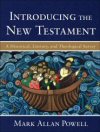
This beautifully written and absorbing survey offers an up-to-date New Testament introduction for undergraduate students and general readers. Powell presents disputed and controversial issues fairly, neither dictating conclusions nor privileging skepticism over faith-based perspectives. The book is written in a lively and engaging style and includes maps, tables, charts, glossary, diagrams, and suggestions for further reading.
In this engaging and up-to-date New Testament introduction, Mark Allan Powell presents disputed and controversial issues fairly, neither dictating conclusions nor privileging skepticism over faith-based perspectives. A recognized expert in New Testament scholarly literature, he nevertheless writes in a lively and lucid style that communicates well to undergraduates.
Drawing on several decades of effective classroom teaching, Powell has produced the quintessential ‘user-friendly’ introduction to the New Testament. He has put student and teacher alike in his debt.
—Mikeal C. Parsons, professor and Macon Chair in Religion, Baylor University
Beautifully presented, accessibly written, clearly organized, and attentive to the beginning student. Both students and faculty will benefit from engaging this book.
—Stephen E. Fowl, professor of theology, Loyola College, MD
Mark Allen Powell is the Robert and Phyllis Leatherman Professor of New Testament at Trinity Lutheran Seminary. He is the general editor of the HarperCollins Bible Dictionary as well as the author of numerous articles and books.
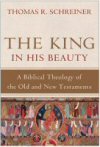
The King in His Beauty: A Biblical Theology of the Old and New Testaments
- Author: Thomas R. Schreiner
- Publication Date: 2013
- Pages: 736
Thomas Schreiner, a respected scholar and trusted voice for many students and pastors, offers a substantial and accessibly written overview of the whole Bible. He traces the storyline of the Scriptures from the standpoint of biblical theology, examining the overarching message that is conveyed throughout. Schreiner emphasizes three interrelated and unified themes that stand out in the biblical narrative: God as Lord, human beings as those who are made in God’s image, and the land or place in which God’s rule is exercised. The goal of God’s kingdom is to see the king in his beauty and to be enraptured in his glory.
A wonderfully clear and faithful account of biblical theology. This book is both intellectually compelling and honoring to God and so deserves to be widely read.
—Simon Gathercole, senior lecturer in New Testament, University of Cambridge
From the Garden of Eden to the Garden of Paradise, Tom Schreiner deftly takes the reader through the entire narrative of the history of redemption. Giving attention to every part of the canonical Scriptures, Schreiner shows how the Bible coheres under the theme of the kingdom or rule of God. The payoff is a feast of theological, practical, and devotional insights. In a simple, direct, and nontechnical way, this book will bring Christians to a new understanding and appreciation of the entire Bible.
—Donald A. Hagner, George Eldon Ladd Professor Emeritus of New Testament, Fuller Theological Seminary
Thomas R. Schreiner (PhD, Fuller Theological Seminary) is James Buchanan Harrison Professor of New Testament interpretation at Southern Baptist Theological Seminary in Louisville, Kentucky. He is the author or editor of numerous books and many articles on New Testament interpretation and biblical theology. He also serves as preaching pastor of Clifton Baptist Church in Louisville, Kentucky.
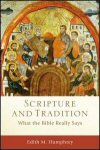
This book sheds new light on the historical tension between Scripture and tradition in the Church. Prominent New Testament scholar Edith M. Humphrey, who understands the issue from both Protestant and Catholic/Orthodox perspectives, revisits this perennial point of tension. She demonstrates that the Bible itself reveals the importance of Tradition, exploring how the Gospels, Acts, and the Epistles show Jesus and the apostles claiming the authority of tradition as God’s Word, both written and spoken. Arguing that Scripture and tradition are not in opposition but are necessarily and inextricably intertwined, Humphrey defends tradition as God’s gift to the Church. She also works to dismantle rigid views of Sola Scriptura while holding a high view of Scripture’s authority.
In Scripture and Tradition, Edith Humphrey provides an intelligent and nuanced way forward, past the stifling oppositions that have dominated the discussions on Scripture and tradition in the recent past. Fusing personal reflection with an excellently articulated and accessible argument, Humphrey shows us how the narrative character of the Christian faith and life mandates that we live in tradition, rejecting the trappings of traditionalism. For as Jaroslav Pelikan noted many years ago, ‘Tradition is the living faith of the dead; traditionalism is the dead faith of the living.’
—George Kalantzis, associate professor of theology, Wheaton College; director, The Wheaton Center for Early Christian Studies
Edith Humphrey bridges the gap between the apostolic and postapostolic church by exploring the biblical foundations for Christian tradition. She invites readers to embrace the Bible’s own witness to tradition as an essential key to the entire life of the church. Elegantly written and exegetically compelling, this book reveals how ‘biblical’ tradition takes us beyond the impasse of the ‘Scripture versus tradition’ debates that have beleaguered Christianity since the Reformation.
—Bradley Nassif, professor of biblical and theological studies, North Park University
Edith Humphrey’s great gift for combining biblical scholarship with pastoral insight is charitably applied to one of the most significant stumbling blocks for Christian unity: the relation between Scripture and tradition. Her focus on Scripture’s own sense of tradition provides a way into the subject that will appeal especially to Protestants who share (and among whom she learned) her deep respect for Scripture. Yet these same readers may begin to discover that the tradition of which she speaks does not diminish but rather sustains, and is sustained by, that respect. What is therefore diminished is the stumbling block itself.
—Douglas Farrow, professor of Christian thought, McGill University
Edith M. Humphrey (PhD, McGill University) is the William F. Orr Professor of New Testament at Pittsburgh Theological Seminary in Pittsburgh, Pennsylvania. She is the author of several books, including Joseph and Aseneth, And I Turned to See the Voice: Rhetoric of Vision in the New Testament, which appears in the Baker Academic Theological Interpretation Collection, and Ecstasy and Intimacy: When the Holy Spirit Meets the Human Spirit. She has also authored numerous articles on the literary and rhetorical study of the Bible.
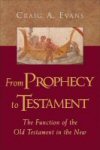
The theology of the New Testament is indebted to—and a reflection of—major Old Testament themes, images, and language, because the New Testament authors wrote in the context of the Old Testament and the rich Jewish tradition of the study and interpretation of Scripture.
A group of ancient Jewish writers provided the Christian church with its Old Testament Greek text (the Septuagint) and provided Aramaic translations (the Targums) for some of the writers of the New Testament. This group also produced many works that, whether intentionally or not, offered interpretations, expansions, and explanations of difficult or obscure Old Testament passages that influenced the New Testament authors.
From Prophecy to Testament opens with a basic overview of past work on the development of New Testament theology, then offers a superb collection of essays exploring the numerous ways in which New Testament writers were informed by the biblical and extrabiblical literature of the Second-Temple period.
Contributors
- Bruce Chilton
- Craig A. Evans
- Rikk E. Watts
- Robert F. Shedinger
- Simon J. Gathercole
- Michael Labahn
- A.J. Droge
- James C. VanderKam
- James L. Kugel
- Brigitte Kahl
- Gary A. Anderson
- James A. Sanders
The study of the influence and use of the Old Testament in the New Testament gains immeasurably in depth when we appreciate that the texts and traditions involved weren’t fixed or static but living, in dynamic interaction with the generations that pondered their words. This book and its various surveys, probes, and well-worked case studies will help bring home this insight with renewed force. I commend it warmly.
—James D.G. Dunn, Emeritus Lightfoot Professor of Divinity, University of Durham
Craig A. Evans is the Payzant Distinguished Professor of New Testament and director of the graduate program at Acadia Divinity College in Wolfville, Nova Scotia. He has received degrees from Claremont McKenna College, Western Baptist Seminary, and Claremont Graduate University. He is a frequent contributor to scholarly journals and the author or editor of numerous publications, including Jesus and the Ossuaries, Ancient Texts for New Testament Studies, Fabricating Jesus, and To See and Not Perceive.
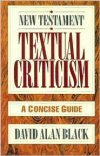
Which translation of the New Testament carries the most authority? What are the criteria for evaluation? This beginner’s introduction presents the fundamentals of textual criticism in a concise manner and includes case studies to offer the student helpful examples. It is dedicated to the principle that an understanding of this subject is possible for all students of the Bible. David Alan Black aims to take inquirers behind the dust of scholarship to the living faith that pulsates in the New Testament documents. He attempts to make the findings of scholarship accessible to a wide readership. Pastors and laypersons will especially benefit from this volume.
The best concise introduction to the textual critical study of the Greek New Testament.
—Fuller Theological Seminary Bookstore
David Alan Black (DTh, University of Basel) is professor of New Testament and Greek at Southeastern Baptist Theological Seminary.
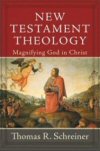
While no single New Testament document claims to offer a comprehensive theology, Thomas Schreiner suggests that certain recurring themes emerge from the study of the whole. In this volume, he traces key themes as they appear throughout the New Testament canon, exploring the emphases that emerge from a detailed reading of the texts.
Schreiner’s approach is based on solid exegesis of all the key texts and leads him to a unified view of core New Testament teaching. He focuses particularly on two overarching themes. The first concerns the unity of redemptive history and the kingdom of God. The New Testament takes up Old Testament imagery and affirms that the kingdom has come (although it remains unfulfilled) in Jesus Christ. The second related theme concerns the goal of the kingdom—the glory of God through the work of Christ and the empowering presence of the Spirit. In the second half of the work, Schreiner takes up the question of what these themes mean for the life of the believer and the ministry of the community of faith. Although this substantial and comprehensive volume will be of great interest to scholars, Schreiner’s first concern is to provide an accessible guide for students and pastors. He has succeeded admirably, and readers will find here a lucid exposition of the theology of the New Testament.
Thomas R. Schreiner is professor of New Testament interpretation at Southern Baptist Theological Seminary. He is the author of Romans in the Baker Exegetical Commentary on the New Testament (BECNT) (16 vols.).
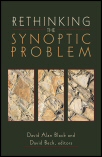
The problematic literary relationship among the Synoptic Gospels has given rise to numerous theories of authorship and priority. The primary objective of Rethinking the Synoptic Problem is to familiarize students with the main positions held by New Testament scholars in this much-debated area of research.
The contributors to this volume, all leading biblical scholars, highlight current academic trends within New Testament scholarship and update evangelical understandings of the Synoptic Problem.
An exciting and readable overview of the present state of the Synoptic problem. The entries are balanced, probing, and incisive, making the volume a valuable introduction for all who would learn more about the knotty but inescapable enigma at the heart of the Gospels.
—David Dungan, former emeritus professor of New Testament and early Christianity, University of Tennessee
This set of essays by first class conservative New Testament scholars constitutes a fine case study of competing views on the Synoptic debate. This volume is eminently fair and helps the reader sort out complex evidence in the study of Gospel parallels. A commendable attitude of humility attends the discussion, but all participants reject postmodern deconstruction of the Gospels’ historicity.
—Royce G. Gruenler, professor emeritus of New Testament, Gordon-Conwell Theological Seminary
David Alan Black (DTheol, University of Basel) is a professor of New Testament and Greek at Southeastern Baptist Theological Seminary. He is also author of New Testament Textual Criticism: A Concise Guide
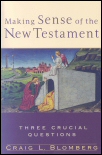
Many Christians assume that the New Testament is historically reliable. This confidence, however, is not universal, and there are many who, especially in light of modern biblical studies, question this claim. Some have also claimed that Paul founded a church quite distinct from the message of Jesus and the Gospels. How can we reconcile their seeming differences? What is the relevance of the New Testament in the world today, in cultures far removed in time and space from the first-century Mediterranean world?
Grounded in sound scholarship but written in an accessible style, this book provides a reasonable, well-informed response to these issues, offering sound introductory guidance to any student of the Bible.
As always, Craig Blomberg is lucid, sensible, and interesting. The book’s organization and style are deceptively simple. Even the mature Christian reader will benefit from Blomberg’s mastery of so much material nicely summarized and evaluated here. Blomberg offers just enough detail to keep us interested in the hard evidence but not so much as to make us feel swamped by minutiae. This book could be confidently placed into the hands of friends who are generally well read but who are nevertheless biblically illiterate, for Blomberg’s mix of sane historical assessment, thoughtful theology, and elementary principles of interpretation open many doors. I hope this book will find many diverse readers and a long life.
—D.A. Carson, research professor, Trinity Evangelical Divinity School
Some New Testament scholars major in minutiae and stay away from the big historical and literary questions, but Blomberg is not one of them. In Making Sense of the New Testament, Blomberg tackles the big issues of the historical reliability of the New Testament—the similarities and differences between the teachings of Jesus and Paul and the various issues of literary criticism—with vim, vigor, and vitality. His study is marked by careful, well-documented scholarship and a well-argued case. This book is an excellent starting place for those who want to discuss the New Testament with a skeptical postmodern audience.
—Ben Witherington III, professor of New Testament interpretation, Asbury Theological Seminary
Craig Blomberg is an ideal scholar to introduce the three crucial questions addressed in this book. He has distinguished himself before in important treatments of these topics, and here he provides an excellent, readable introduction that will profit basic and advanced readers alike. His treatment reflects exceptionally clear, original thinking as well as thorough familiarity with wider scholarly discussion.
—Craig Keener, professor of New Testament, Asbury Theological Seminary
In addressing three crucial questions, Blomberg has given us an imposing, crisply written apologetic that is at once relevant, fair-minded, and comprehensive. This is a worthy companion to Longman’s parallel text for the Old Testament.
—Paul Barnett, teaching fellow, Regent College
Craig L. Blomberg (PhD, University of Aberdeen) is a distinguished professor of New Testament at Denver Seminary, where he has taught for more than 15 years. He is the author or editor of more than 10 books, including Jesus and the Gospels and Interpreting the Parables.